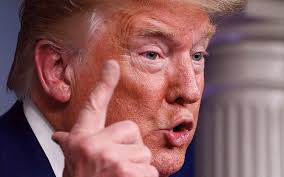World
Obama bans oil drilling in Arctic
Washington: US President Barack Obama has permanently banned offshore drilling in areas of the Arctic and Atlantic oceans. According to the White House, Obama’s move on Tuesday will prevent future leasing of certain offshore areas for oil rights.
His successor, Donald Trump, who has promised a policy allowing more US energy production, would face legal challenges if he attempted to reverse Obama’s order.
The White House said Obama was declaring the entire US portion of the Chukchi Sea and the vast majority of the Beaufort Sea “indefinitely off limits for future oil and gas leasing”, citing critical protection for the marine mammals, ecological resources and native populations.
Canada also announced on Tuesday that it will freeze its offshore oil and gas exploration in its Arctic waters. The US is also declaring 31 canyons off the Atlantic coast off-limits for drilling, citing “critical and irreplaceable ecological value”.
The White House said the decision was for “a strong, sustainable and viable Arctic economy and ecosystem.” It cited native cultural needs, wildlife concerns, and the “vulnerability” of the region to oil spills as some of the reasons for the ban.
The decision relies on the 1953 Outer Continental Shelf Lands Act that allows presidents to withdraw lands from future leasing. It has been used by past administrations to restrict oil exploration on the West and East coasts, though each time the ban on leases was given an expiration date.
World
Lockdowns in China Force Urban Communities to Defy Censorship and Vent Frustration Online

Shanghai’s rich middle class is leading a wave of online dissent over the strict and prolonged lockdowns imposed in various parts of the country. Chinese internet censorship is struggling as patience is wearing thin in many urban centers, coming up with creative forms of online protests.
Social Media Posts Revealing Lockdown Tension in Shanghai
Drawn-out lockdowns are nothing new in China as authorities insist with the nation’s zero-Covid policy since the start of the pandemic. Currently over This time around, however, metropolitan areas like Shanghai are increasingly difficult to keep quiet, given that its more than 25 million residents have seen weeks of total isolation along with food shortages and many other service interruptions.
Dozens of towns and reportedly over 300 million Chinese citizens have been affected by lockdowns of different severity. As expected, urban netizens have been most outspoken over their difficulties by finding creative ways to get around state censorship and bans placed on topics, news comments and spontaneous campaigns.
Shanghai residents have been using mobile proxies and hijacking seemingly unrelated hashtags to talk about healthcare issues, delivery failures and the overall severity of their situation. The “positive energy” that the Chinese government wants to transmit during the recent prolonged series of lockdowns does not come naturally to those counting food supplies and online censors are working hard to filter words, trending topics and undesired social media sharing.
WeChat groups and message threads are under constant monitoring. Posts questioning the zero-Covid approach have been quickly deleted, including by leading Chinese health experts like Dr. Zhong Nanshan. Video footage is soon censored and protests and investigations are quickly made to disappear.
Where this has not worked, officials have exposed banners with warnings and outright threats like “watch your own mouth or face punishment”, while drones have been patrolling the city skies. Yet, if anything, this has led to further tensions and unspoken confrontation with Shanghai’s educated and affluent middle class.
Creative Online Solutions Harnessing Civic Energy
Announcements by Chinese social media that they would be publishing the IP addresses of users who “spread rumors” have not helped either. Tech industry research has shown that much of Asia’s tech-savvy population has a habit of using mobile proxies and other privacy tools, quickly finding workarounds to browse the internet freely and talk to the world about the hottest topics.
The sheer volume of forbidden posts is already a challenge for the very censorship system, experts explain. Unable to track all trending hashtags, state workers overlook topics that speak about the US, Ukraine or other popular news. Linking human rights elsewhere to their situation, Chinese online dissidents establish their informal channels and “hijack” the conversation to share personal or publicly relevant information about the Covid suppression in their town.
Sarcastic and satirical posts still dominate. Others hope to evade the censors by replacing words from famous poems or the national anthem. One thing is certain – social media, when harnessed with the right creativity, has proven its ability to mount pressure on the government in even some of the most strictly controlled tech environments like China.
























